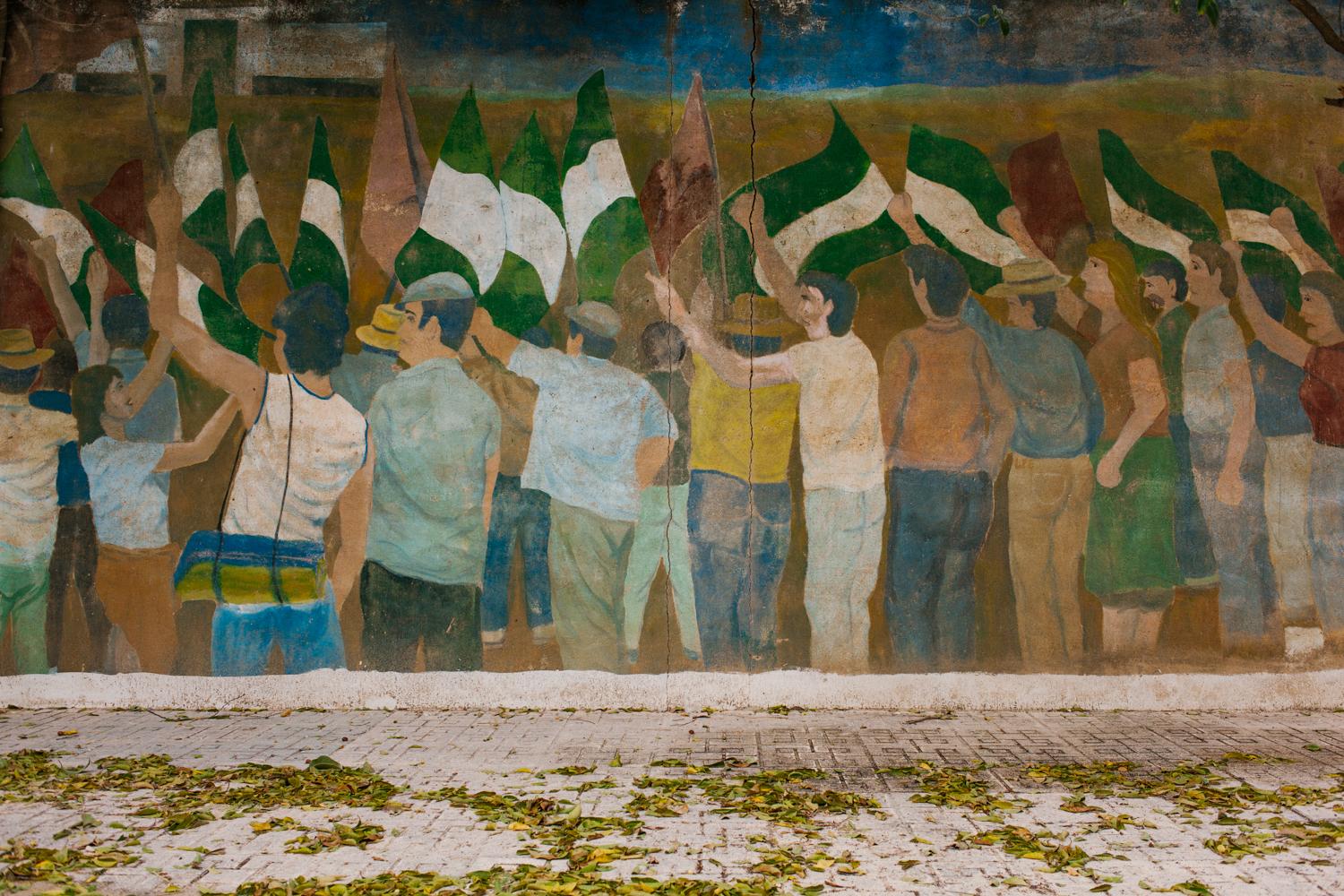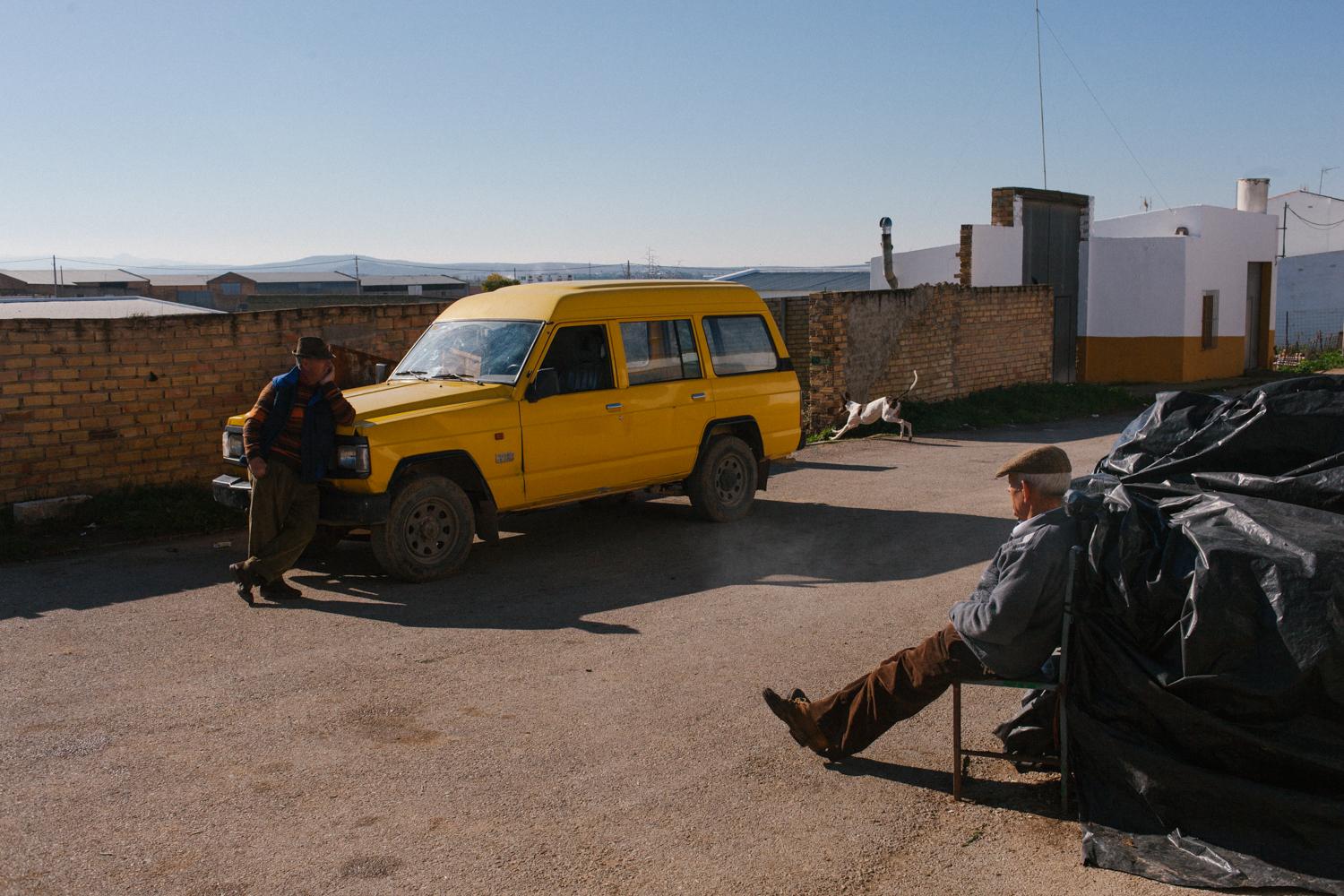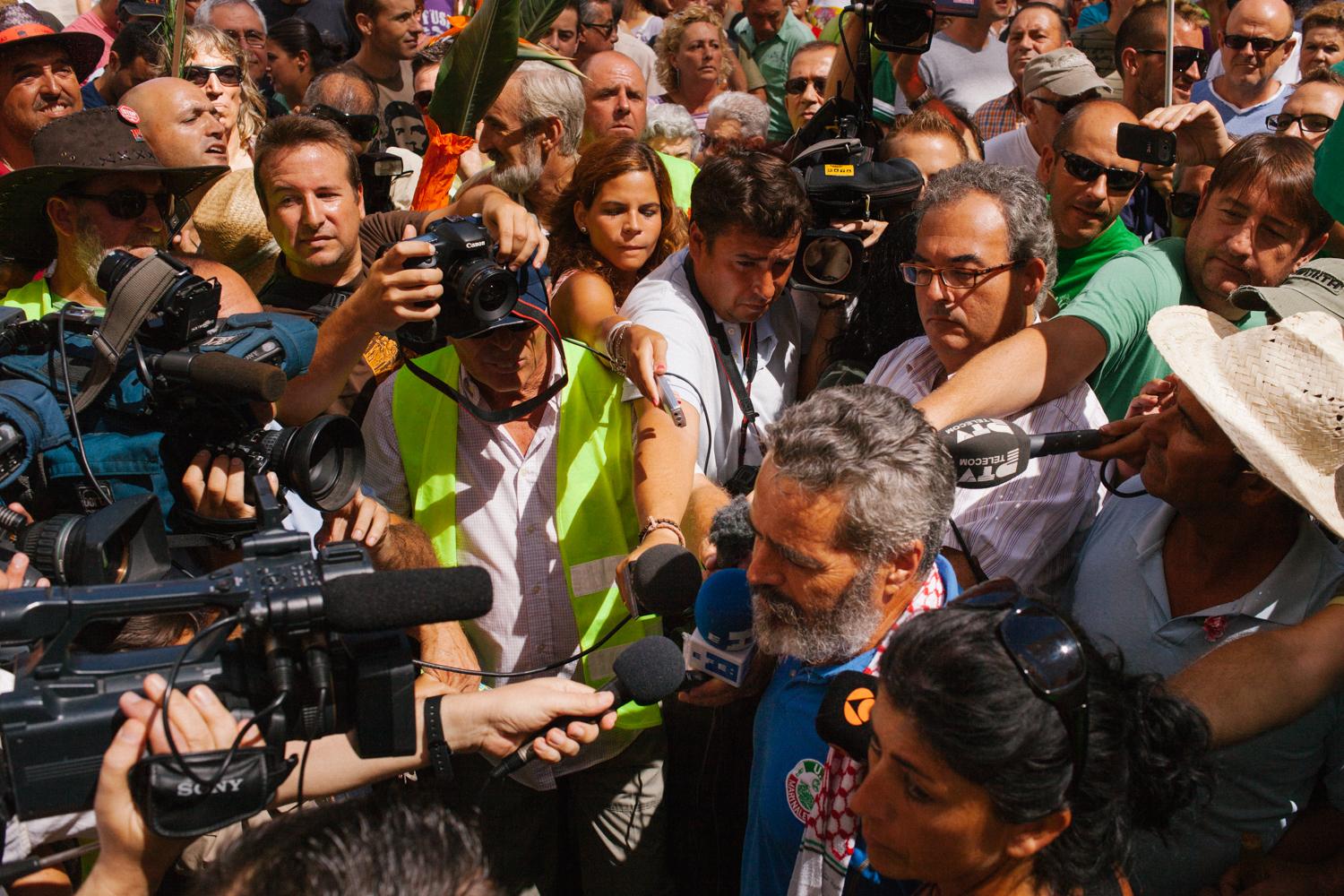Public Project
Send me a postcard from Utopia
Ella está en el horizonte.
Yo me acerco dos pasos y ella se aleja dos pasos.
Camino diez pasos y el horizonte se corre diez pasos más allá.
Por mucho que yo camine, nunca la alcanzaré.
¿Para que sirve la utopía? Para eso sirve, para caminar.
Eduardo Galeano
Marinaleda es un pueblo andaluz de algo menos de 3.000 habitantes, politizado y combativo.
Es de izquierdas, muy de izquierdas, y ha tenido uno de los alcaldes más longevos, reivindicativos y mediáticos de la democracia española: Juan Manuel Sánchez Gordillo, alcalde desde 1979 hasta 2023 e icono de la lucha por los derechos de los trabajadores del campo.
Algunos de sus habitantes más mayores tienen dificultades para escribir su nombre, pero la mayoría conoce el movimiento de los Sin Tierra en Brasil o está al tanto de lo que ocurre en Palestina. Movidos por la necesidad y guiados por su alcalde, abrazaron la ideología, y reafirmaron su compromiso con acciones: durante la mayor parte de 7 años, a principios de los 80, ocuparon la finca de Los Humosos, unas tierras regaladas en su día por Franco a un miembro de la nobleza, hasta que consiguieron que el gobierno las expropiara y las devolviera al pueblo, algo que jamás habia ocurrido antes en España. Siguiendo un modelo cooperativista, el ayuntamiento gestionó las tierras de tal manera que no solo acabó con el desempleo en el pueblo, sino que además generó unos beneficios que permitieron a Marinaleda tener un estado del bienestar a niveles que solo podríamos calificar como escandinavos. Siguieron acciones concretas para reivindicaciones concretas: cortes de pistas de aeropuertos o de vías de tren de alta velocidad, marchas de protesta de varios días u ocupaciones de sedes bancarias.
En España apenas se conoce su historia, pero no es raro encontrar allí equipos de televisión o reporteros de otros países, ya que a principios de los 2000 se hablaba internacionalmente de Marinaleda como la utopía socialista hecha realidad.
La crisis de 2008 puso a la vista las costuras del sistema: cuando los habitantes que habían estado trabajando en otros sectores, como la hostelería y la construcción en localidades vecinas, perdieron sus empleos, la economía cooperativista no pudo sostener a todo el pueblo ni mantener el mismo nivel de servicios sociales. Entonces comenzaron las miradas de reojo, las luchas de poder y las voces disidentes. También los sálvese quien pueda. Sus críticos, que nunca fueron pocos, aprovecharon las circunstacias para atacar los principios mismos del socialismo, en los que se basaba su éxito.
Este proyecto es un acercamiento a lo cotidiano de una utopía normal, real y humana; con sus fallos y contradicciones, pero honesta y comprometida. Una que encarna esa Utopía de Galeano que, esa que siempre se mantiene a unos pasos de distancia y que, en realidad, sirve como un horizonte hacia el que caminar.
She is on the horizon.
I move two steps closer and she moves two steps away.
I walk ten steps and the horizon runs ten steps further.
No matter how far I walk, I will never reach her.
What is utopia for? That's what it's for, to walk.
I move two steps closer and she moves two steps away.
I walk ten steps and the horizon runs ten steps further.
No matter how far I walk, I will never reach her.
What is utopia for? That's what it's for, to walk.
Eduardo Galeano
Marinaleda is a small Andalusian town with just under 3,000 inhabitants, politically active and combative.
It is very left-wing, and it had one of the longest-serving, most outspoken, and media-savvy mayors in Spanish democracy: Juan Manuel Sánchez Gordillo, who served as mayor from 1979 until 2023 and became an icon of the struggle for the rights of agricultural workers.
Some of its older residents have difficulty writing their own names, but most are aware of the Landless Workers' Movement in Brazil or are informed about what is happening in Palestine. Driven by necessity and guided by their mayor, they embraced the ideology and reaffirmed their commitment through actions: for most of seven years in the early 1980s, they occupied the Los Humosos estate—land once gifted by Franco to a member of the nobility—until they succeeded in having the government expropriate it and return it to the people, something that had never happened before in Spain. Following a cooperative model, the town council managed the land in such a way that it not only eliminated unemployment in the town but also generated profits that allowed Marinaleda to enjoy a welfare state at levels that could only be described as Scandinavian. Concrete actions followed for concrete demands: airport runway blockades, high-speed rail track blockades, multi-day protest marches, or bank building occupations.I
n Spain, its story is barely known, but it’s not uncommon to find TV crews or reporters from other countries there, as in the early 2000s, Marinaleda was internationally hailed as the realization of a socialist utopia.The 2008 crisis exposed the cracks in the system: when residents who had been working in other sectors, such as hospitality and construction in neighboring towns, lost their jobs, the cooperative economy could no longer sustain the entire town or maintain the same level of social services. Then began the side glances, power struggles, and dissenting voices. The “every man for himself” mentality also emerged. Its critics, who had never been few, seized the circumstances to attack the very principles of socialism on which its success was based.
This project is an approach to the everyday life of a normal, real, and human utopia, with its flaws and contradictions, but honest and committed. One that embodies Galeano's Utopia, the one that always remains a few steps ahead and, in reality, serves as a horizon to walk to.
3,925



































